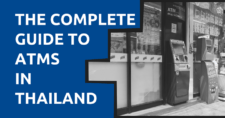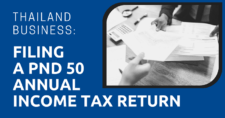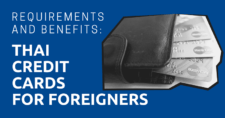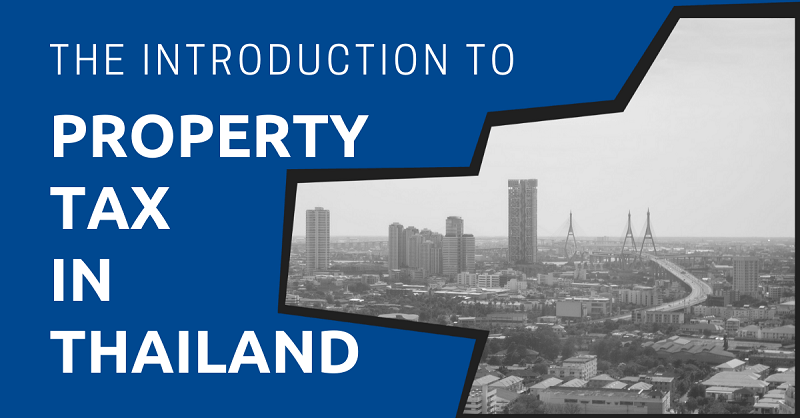
Whether you’re planning to buy a property in Thailand or you already have one, you might be obligated to pay taxes to the Thai government. There are a variety of taxes that they charge and conditions under which they’re applied.
It’s always a good idea to go through the list of taxes that you’re obligated to pay both with your real estate agent and your lawyer or go to the local district office themselves and ask them.
Here is a list of the various taxes that you’ll be obliged to pay when either selling or buying a property in Thailand.
"*" indicates required fields
Disclaimer: This article may include links to products or services offered by ExpatDen's partners, which give us commissions when you click on them. Although this may influence how they appear in the text, we only recommend solutions that we would use in your situation. Read more in our Advertising Disclosure.
Contents
(And How It’s Costing Them)
Most expats throw money away, get lost in red tape, and miss the local hacks that make life easier and cheaper. ExpatDen Premium gives you the secrets seasoned expats use to save, earn, and thrive beyond the basics, saving you thousands and opening doors you didn’t even know existed.
Here’s what’s inside:
- Housing Hacks: Slash your rent by 40% or more - because the locals are laughing at what you’re paying.
- Banking Mastery: Stop wasting on fees and get top exchange rates. Why give your money away?
- Healthcare for Local Prices: Quality treatment without the expat price tag.
- Visa and Legal Shortcuts: No more bureaucratic nightmares. Get the visa and residency secrets that others pay their lawyer dearly for.
- Deep Discounts: Find the savings locals rely on for groceries, dining, and more.
If you’re serious about making Thailand work for you, join ExpatDen Premium and make Thailand work for you.
First Things First: Get Know the Declared Value of Your Property
The calculation for your property tax is based on the declared value of your property.
The declared value of the property is the price paid for the property, and it can be used on the transfer documents.
Be aware that the terms ‘’assessed value’’ and ‘’declared value’’ can both be used to express the same thing because they are often recorded as being the same value on transfer documents.
The declared value should be a reflection of the true market value. In many cases, it’s going to be higher than the assessed value, which is the official government reckoning of the value of your property.
However, in case the assessed value is higher than the declared value, the property tax is going to be calculated by the assessed value instead. Property tax is calculated based on the higher of the two.
Transferring a Property
When you transfer a property in Thailand, there are 4 related taxes:
- Transfer tax
- Stamp duty
- Withholding tax
- Business tax
Transfer Tax
Transfer tax is set at 2% of the registered value of the property.
Stamp Duty
This is levied at 0.5% of the registered value of the property and it’s payable if you are not liable for Business Tax. The seller is likely to responsible to pay this tax at the time of the sale of the property.
Withholding Tax
Withholding tax works differently depending on whether the seller is a company or an individual.
If the Seller Is a Company
A company selling a property must pay 1 percent of the higher of:
• the registered (declared) sale value, or
• the Land Department’s appraised value.
If the Seller Is an Individual
For individuals, withholding tax is treated as personal income tax, calculated using a special formula that the Land Department applies.
Please note that the withholding tax rate for transferring a property is easily miscalculated. You can visit the Department of Land for the exact calculation.
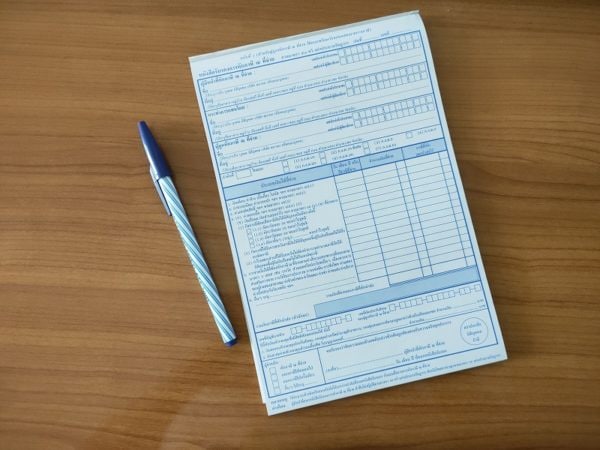
Business Tax
If a seller, not a company, owns a property for less than 5 years, he/she is obliged to pay this tax and it’s levied at 3.3% depending on whether the registered sale value or the appraised value is the higher value.
The obligation is the same if you’re an individual or a business.
Another exception for a business is if a seller lives in the property and has their name registered in the house registration book for longer than a year.
Mortgage Fee
If a buyer takes a mortgage to purchase a property, there is a 1% mortgage fee based on the registered value of the property.
Who Pays for Which Tax When Transferring a Property in Thailand?
This totally depends on the negotiation. Sometimes, a seller can cover all of the fees. In rare cases, if a property price is very low, a buyer pays everything.
However, in many cases, it goes like this:
- Transfer tax: equally split between a buyer and a seller
- Duty stamp: a seller
- Withholding tax: a seller
- Business tax: a seller
- Mortgage fee: a buyer
How to Pay Taxes When Transferring a Property?
You can pay directly at the Department of Land via QR code payment. Cash payments are no longer accepted.
Annual Land Tax
The building, housing, and land taxes are collected annually under the Land Tax Cut.
There are other taxes worth considering. The Land and Building Tax (2019) assesses taxes based on the value appraised by the government as follows:
- Agricultural 0.01% – 0.1%
- Residential 0.02% – 0.1%
- Commercials 0.3%-0.7%
- Vacant/Unused 0.3%-0.7%
There are exemptions.
- If your first property is a residence and you own the land and the building and it is worth less than 50 million baht, then you’ll be exempt.
- If you’re the owner of agricultural land that is worth less than 50 million baht you’ll be exempt.
Because of this, you’ll see people start planting banana trees on their empty land to avoid this tax. However, the Revenue Department knows about this and is stricter about it now.
The easiest way to pay an annual property tax is at a district office or though mobile banking.
A change of ownership or purpose needs to be notified to the SAO or the sub-district administration within 60 days. Your tax obligation will begin on January 1st of the next year.
Rental Income Tax
The money that you collect from the rent is regarded as income and will be paid as personal income tax. You can check our article on Thailand Income Tax for Foreigners for additional information.
Tax Payment
You can pay your taxes online through your Thai bank account to the Revenue Department.
Bangkok Bank and Krungthai Bank both allow tax payments to be made at their branches.

If you do it at Krungthai Bank, there are four steps.
- The company such as a tax lawyer issues the tax slip.
- You can physically bring the tax bills to the bank. Your relevant company can print these out for you.
- The bank itself can issue you with the tax slip.
- Your company can then provide you with the tax receipt.
Alternatively, here’s other payment options that are open to you:
- If the amount that is owed is small you can pay via an ATM.
- Another option is to pay via the internet through the bank’s website.
- Your payment can be paid through the juristic person.
It is up to you to assess which method is best for you in order to legally pay your taxes. The payment process normally starts with the owner reporting a self-declaration to the SAO for land and building taxes.
When Do You Pay Property Taxes?
Since there is no general property tax in Thailand the time to pay varies.
Taxes under the Land Tax Act are collected annually by the local government. The tax year runs from January 1st through to December 31st and the taxes for this period are due by March 31st.
A Word of Warning
The local authorities periodically become pro-active and look for non-payers and you can be fined. If you own a property through a Thai company, the fine and the assessed tax bill will be sent to you directly.
Prompt payment will curtail further investigations into your tax obligations.
Now, on to You
The property tax in Thailand is complicated and often overlooked by many people. If you own a property in Thailand, it is a good idea to check with a tax adviser or a tax lawyer to find out whether or not you are liable to any property tax.
Failing to do so can give you a large amount of fines.


